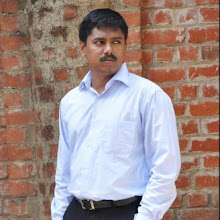China has swept headlines with its recent space agenda and engineering efforts, including the world’s fastest supercomputer and bullet train, the world’s largest hydroelectric dam, and plans for a new space station and satellites that may visit Mars.
It’s a fresh indication of the growing science and technology prowess of the world’s most populated country, and experts fear China could soon eclipse the U.S. in the race for tech supremacy.
U.S. is still the dominant leader in science and technology -- but a downslide is coming as U.S cant keep up with China.
Because of that, by essentially any measure of consequence, U.S are slowing down as China -- and in some cases Europe -- are surging ahead. The ultimate consequence will be paid by the next generation.
No One really care if China has the fastest train in the world -- but one has to care that we have nothing remotely like fast, efficient, state of the art rail travel anywhere in the U.S. And U.S will be very sorry if it cease to define the cutting edge of technology and technology-based products and services, because that is its only shot at sustaining the production of good jobs. The need for change to the education system is a sentiment that has been repeated numerous times in recent years.
"The single biggest lever for economic innovation in our society is education," University of Pennsylvania president Amy Gutmann said during a recent Wall Street Journal roundtable discussion. "We have to compete today against the Chinese and Indians who are graduating tens of thousands more very talented science, math and engineering graduates from their colleges."
Bill Gates, the former head of Microsoft, has shared similar concerns in past years. "When I compare our high schools to what I see when I’m traveling abroad, I’m terrified for our workforce of tomorrow," he told the National Governors Association.
"You already have major companies manufacturing in China," Randolph told. "It’s natural that these companies start to do more local research and development."
"Sean Randolph, president of the Bay Area Council Economic Institute and an expert on Asian innovation and engineering."
Randolph cited Mark Pinto, the first chief technology officer of a major American tech firm to move his company to China.
Applied Materials formerly based in Silicon Valley, is a world leading supplier of equipment used to make semiconductors, solar panels, and flat-panel displays. The company now boasts its largest ever research laboratory -- in Xi-an, China.
Often it’s government assistance that gives China a distinct advantage, Randolph told.
"They’re authoritarian, which has allowed them to develop and maintain that focus in setting national objectives -- such as renewable energy and clean tech," he told.
Other experts agree that the recent raft of "firsts" aren't as important as they may seem. "If you look at clean tech, China is by far the biggest producer and exporter of solar panels," Randolph told. "But the technology itself isn’t the most sophisticated." Adam Segal, a political scientist with the Council on Foreign Relations and author of the upcoming book "Advantage: How American Innovation Can Overcome the Asia Challenge," agrees that the country isn't as innovative as all those firsts may indicate. "There’s a lot of investment. People are coming up with new policies and lots of ambitious plans -- but the actual output?
It’s not as much as you’d expect," Segal told. "The software of innovation just isn’t really there. The social and political infrastructure for creative development isn’t robust enough." The technology for that new high-speed bullet train, for instance? It came from Europe, Randolph pointed out.
"What you’re seeing in China -- and in India -- is not a lot of game-changing technology or a lot of high-end research," Randolph told.
If we do not educate young men and women to participate -- and do not produce the basic scientific and technological knowledge to enable innovation -- we're stuck. And if China continues to focus its investments in such strategically important directions, and if their society celebrates it, we could indeed lose our lead and our consequent standard of living to them.
